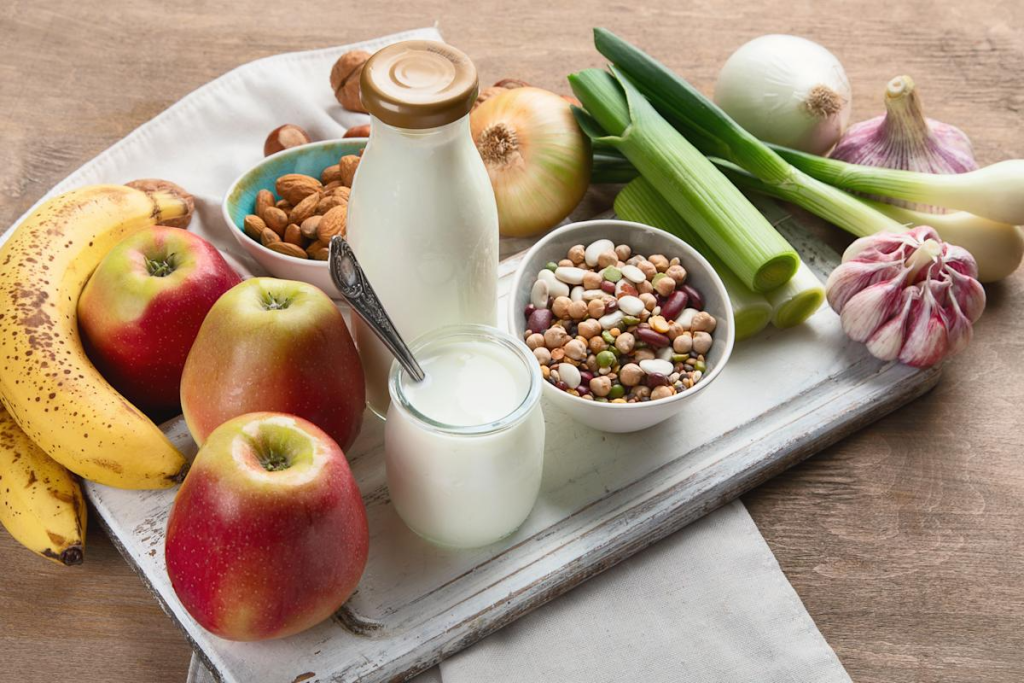Last Updated on October 31, 2025 by

Urinary tract infections (UTIs) affect over 150 million people worldwide each year. The American Urological Association says about 60% of women and 12% of men will get a UTI in their lifetime. Some people have UTIs many times.
Knowing what is a UTI and its signs is key to stopping and treating it. We’ll look at daily supplements and lifestyle changes to prevent UTIs. These are backed by science and expert advice. We’ll also talk about how to get rid of a UTI and managing uti symptoms women face.
UTIs are a big problem, affecting over 150 million people worldwide each year. It’s important to understand the numbers and why some people are at higher risk.
Urinary Tract Infections are very common, affecting many people. They are a big health issue, with many facing repeated infections. Women after menopause and people with diabetes are at higher risk. This is because of lower estrogen levels and weaker immune systems.

Knowing why UTIs keep coming back is key to stopping them. Sex, medical conditions, and body shape play big roles. Women are more at risk because their urethra is shorter, making it easier for bacteria to get in.
Living with chronic UTIs can really hurt your life. Symptoms like painful urination and needing to pee a lot are hard to deal with. The emotional strain can also cause anxiety and depression. It’s vital to tackle both the physical and emotional sides to help fully.
Recent studies show that taking whole cranberry powder daily can cut UTI risk by 52% in women prone to UTIs. This shows that prevention can be a powerful tool against UTIs.
Preventing UTIs needs a mix of methods, including proven supplements. Liv Hospital leads by using the latest in preventive medicine. We focus on ethics and improving patient care.
Cranberry products are known for lowering UTI risk. Studies show they can cut UTI risk by 52% by stopping bacteria from sticking to the urinary tract. This is a big win for daily UTI prevention. Research backs their role in UTI prevention.

Probiotics help keep the urinary tract healthy. They balance bacteria, stopping harmful ones from growing. This makes probiotics key for daily UTI prevention.
D-mannose is a sugar that fights UTIs. New 2024 research supports its use for daily UTI prevention. Knowing how D-mannose works helps people choose it for a natural UTI cure.
In summary, supplements like cranberry products, probiotics, and D-mannose help prevent UTIs. Adding them to your daily routine can lower UTI risk. Liv Hospital stresses the need for a full approach to UTI prevention, including these supplements.
Preventing UTIs is more than just treating them. It’s about making daily habits that keep your urinary system healthy. Simple changes in our daily routine can greatly lower UTI risks.
Drinking enough water is key to preventing UTIs. It dilutes bacteria and flushes out harmful ones. Experts say to drink at least eight glasses of water a day to stay hydrated and lower UTI risk. Also, adding cranberry juice to your diet can help, as it may stop bacteria from sticking to your bladder and urinary tract walls.
Other than water, unsweetened cranberry juice is also good. But it’s important to avoid drinks that can irritate your bladder, like caffeine and alcohol.
Good hygiene is vital in preventing UTIs. Wiping from front to back after using the bathroom is a simple yet effective way to stop bacteria from getting into the urethra. Also, urinating after sex can help get rid of bacteria that may have entered the urinary tract.
Changing your diet can also help your urinary tract health. Eating foods rich in antioxidants, like berries and leafy greens, can reduce inflammation and promote health. Plus, adding probiotics to your diet can help keep a healthy balance of bacteria in your urinary tract.
“A healthy diet combined with good hydration habits can significantly reduce the risk of UTIs.”
At the first sign of a UTI, drinking more water and urinating often can help get rid of bacteria. Some studies show that D-mannose, a type of sugar, may help prevent UTIs by stopping bacteria from sticking to the urinary tract walls. But, always talk to a healthcare professional for the right diagnosis and treatment.
By making these daily lifestyle changes, you can greatly reduce your risk of UTIs and keep your urinary tract healthy.
Medical treatments are key in managing chronic UTIs. For those with recurring infections, these treatments are essential.
Low-dose antibiotic prophylaxis is a common treatment for recurring UTIs. It involves taking antibiotics regularly to prevent infections. The benefits include reduced frequency of UTIs and improved quality of life. But there are concerns about antibiotic resistance and side effects.
Studies show that low-dose antibiotic prophylaxis can help prevent UTIs in some people. It’s important to consider the benefits and risks and watch for any side effects.
Hormonal changes in menopause can raise UTI risk. Hormone replacement therapy (HRT) may help. It can restore the natural balance of bacteria in the urinary tract, lowering infection risk.
Postmenopausal women with recurring UTIs should talk to their healthcare provider about hormonal treatments. It’s a valuable part of a complete treatment plan.
Liv Hospital leads in UTI prevention, using the latest protocols for patient care. Their approach combines medical treatments and patient education.
If you have recurring UTIs, seeking professional help is vital. A healthcare provider can find the cause and suggest the right treatment.
“Recurrent UTIs can significantly impact a person’s quality of life. Seeking medical attention is the first step towards effective management and prevention.”
Don’t delay if you think you have a UTI. Early treatment can prevent serious problems and improve your health.
Knowing the signs of UTI in women is key to avoiding infections. By making lifestyle changes, taking supplements, and getting medical help when needed, you can make a plan to prevent UTIs. This plan is made just for you.
Experts say it’s important to have a plan that fits your own needs and health. This means understanding what UTIs are and how they affect your body.
Preventive lifestyle changes, supplements like cranberry products and D-mannose, and medical help when needed can lower UTI risk. If you get UTIs often, knowing how to treat them is vital.
By being proactive and informed, you can create a UTI prevention plan that’s right for you. This can help you avoid future infections and keep your urinary system healthy.
A UTI happens when bacteria get into the urinary tract. This can cause infections in the bladder, kidneys, or urethra. Knowing how UTIs occur is key to preventing them.
UTI symptoms include a burning feeling when you pee, needing to pee a lot, and urine that smells bad. Women might also feel pain in their pelvis. If you have these symptoms, it’s important to see a doctor.
To avoid UTIs naturally, drink lots of water and keep yourself clean. Adding cranberry products, probiotics, and D-mannose to your routine can also help. These steps can lower your UTI risk.
Cranberry products can help stop UTIs by keeping bacteria from sticking to your bladder and urinary tract. Adding them to your UTI prevention plan is a good idea.
Drinking water helps flush out bacteria from your urinary tract. This can lower your risk of getting a UTI. Drinking water all day is good for your urinary tract health.
Eating foods high in antioxidants, fiber, and omega-3 fatty acids can help your urinary tract. A balanced diet that includes these foods is best for overall health.
If you keep getting UTIs, you should see a doctor. They can find out why and help you prevent them. They can also help manage chronic UTIs.
For chronic UTIs, treatments like low-dose antibiotics and hormonal treatments for postmenopausal women are options. We work with patients to find the best treatment for them.
To quickly get rid of a UTI, see a doctor, drink lots of water, and use supplements like D-mannose and probiotics. Antibiotics might also be needed to treat the infection.
Some UTIs can be treated naturally, but if symptoms don’t get better or get worse, you should see a doctor. Using natural remedies like hydration, probiotics, and D-mannose is helpful, but antibiotics might be needed for effective treatment.
Subscribe to our e-newsletter to stay informed about the latest innovations in the world of health and exclusive offers!